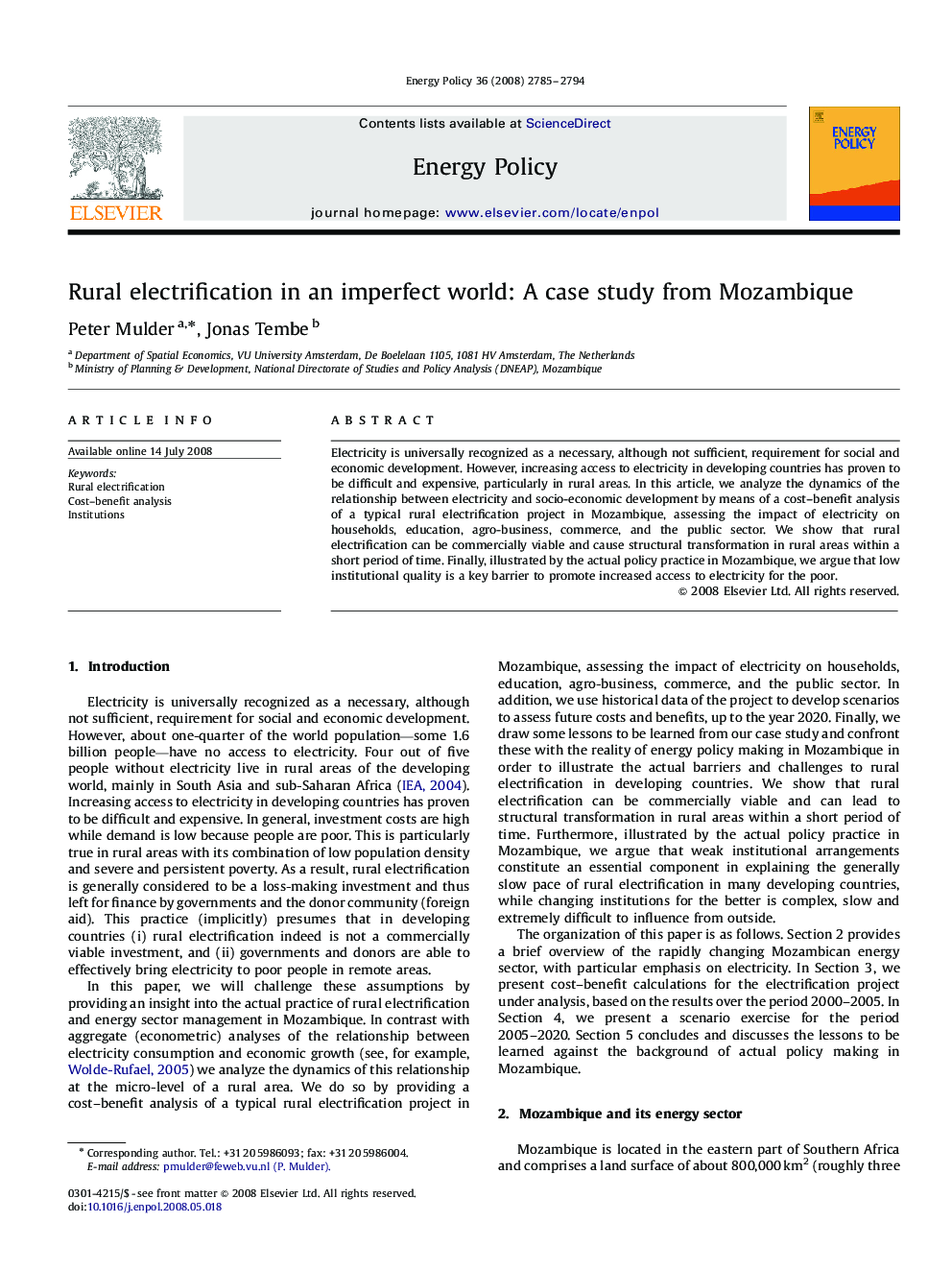| Article ID | Journal | Published Year | Pages | File Type |
|---|---|---|---|---|
| 997071 | Energy Policy | 2008 | 10 Pages |
Electricity is universally recognized as a necessary, although not sufficient, requirement for social and economic development. However, increasing access to electricity in developing countries has proven to be difficult and expensive, particularly in rural areas. In this article, we analyze the dynamics of the relationship between electricity and socio-economic development by means of a cost–benefit analysis of a typical rural electrification project in Mozambique, assessing the impact of electricity on households, education, agro-business, commerce, and the public sector. We show that rural electrification can be commercially viable and cause structural transformation in rural areas within a short period of time. Finally, illustrated by the actual policy practice in Mozambique, we argue that low institutional quality is a key barrier to promote increased access to electricity for the poor.
